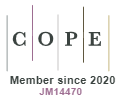Lung function, respiratory muscle strength and endurance, and quality of life in the morbidly obese
DOI:
https://doi.org/10.5585/conssaude.v11n4.3786Palavras-chave:
Obesity, Physiotherapy (Techniques), Quality of life, Respiratory function tests, Respiratory muscles.Resumo
Introduction: Obesity may decrease the strength of respiratory muscles as well as pulmonary function. Objective: To analyze the influence of respiratory muscles and pulmonary function on the quality of life of morbidly obese individuals. Methods: Twenty-eight morbidly obese individuals of age ≥ 18 and Body Mass Index ≥ 40kg/m² were assessed for maximal respiratory pressures, pulmonary function, and quality of life. Results: The maximal respiratory pressures were 96.30% and 100.21% of the expected levels. Regarding pulmonary function, there were changes in the results of peak expiratory flow (PEF) and forced inspiratory vital capacity (FIVC), which were below the expected levels (92.32% and 89.14%, respectively). Quality of life results showed an average score of 50 on the items related to mental health, while the average score on physical health items was 46. Conclusions: MRP and pulmonary function do not seem to affect the quality of life in morbidly obese individuals. http://clinicaltrials.org - NCT01449643 - The Influence of Inspiratory Muscular Training (IMT) on Diaphragmatic Mobility in Morbidly Obese.Downloads
Não há dados estatísticos.
Downloads
Publicado
04.01.2013
Como Citar
1.
Tenório LHS, Nunes RP, Santos AC, Câmara-Neto JB, Lima AMJ, França EET de, et al. Lung function, respiratory muscle strength and endurance, and quality of life in the morbidly obese. Cons. Saúde [Internet]. 4º de janeiro de 2013 [citado 8º de novembro de 2024];11(4):635-41. Disponível em: https://periodicos.uninove.br/saude/article/view/3786
Edição
Seção
Ciências aplicadas
Licença
Copyright (c) 2012 ConScientiae Saúde

Este trabalho está licenciado sob uma licença Creative Commons Attribution-NonCommercial-ShareAlike 4.0 International License.








